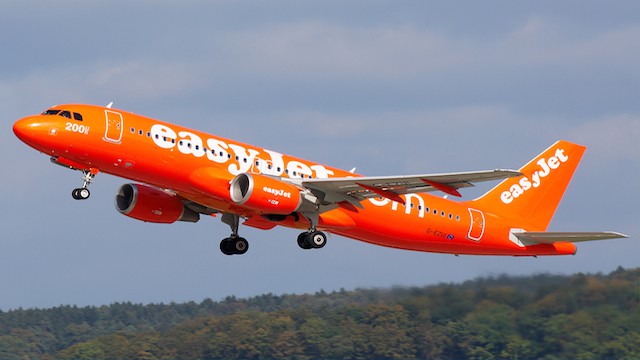With its share price having halved since 2015, EasyJet (LSE: EZJ) has become a low-cost airline with a low-cost price tag. By the end of 2016 the budget airline’s shares had sunk below the £10 threshold for the first time since early 2013, and contrarians have since mused on their investment appeal. EasyJet’s shares are undoubtedly cheap relative to previous levels, but are they necessarily good value at the present time?
Mixed results
In its first quarter update the Luton-based carrier reported an 8.2% rise in passenger numbers to 17.4m, driven by a growth in capacity of 8.6% to 19.3m seats. Total revenue in the quarter increased by 7.2% to £997m reflecting the increase in passengers carried through the period.
However, revenue per seat slipped by 8.2% at constant currency rates, or by 1.2% on a reported basis to £51.64 per seat. Non-seat revenue continues to rise, with a substantial 19% increase during the quarter thanks to improvements to inflight product ranges and attractive partner agreements.
Currency woes
Management has admitted that the weakness of sterling and the impact of fuel costs were £35m worse than previously expected, but the airline has been making good progress in reducing costs in those areas where it has more control such as engineering, maintenance, non-regulated airports and overheads. Nevertheless, the company expects the weakness of sterling to have an adverse impact on full-year pre-tax profits of around £105m. That’s huge!
Sometimes shares are cheap for a reason, and in the case of EasyJet the fall in the value of the pound, coupled with the uncertainty surrounding the impact of Brexit, make the airline a little too risky for me at the moment.
Our friends in the City seem to share my reservations (pun intended), with analysts predicting a 30% slump in underlying earnings to £302m this year. This will hike the earnings multiple up to 13, and that’s not cheap enough for me given the uncertainty.
Brexit uncertainty
Since I last recommended the shares in November, Howden Joinery Group (LSE: HWDN) has performed reasonably well, gaining 19%, which pushed the share price past 400p last month. The UK’s leading supplier of kitchens has since published its full-year results for 2016, and as expected both revenues and profits rose handsomely over the 12 month period.
However, softer trading conditions seen during the second half of 2016 have continued into the early part of this year, with volumes having weakened slightly. As with EasyJet, uncertainty around the impact of Brexit could weigh on the shares for some time, and this will no doubt increase the risk associated with the company and its prospects.
Back in November I thought the shares offered good value trading at 13 times earnings, but the recent share price surge has lifted the P/E ratio to 15 for 2017. I think the shares now offer limited upside potential, making them less appealing, given the risks.








